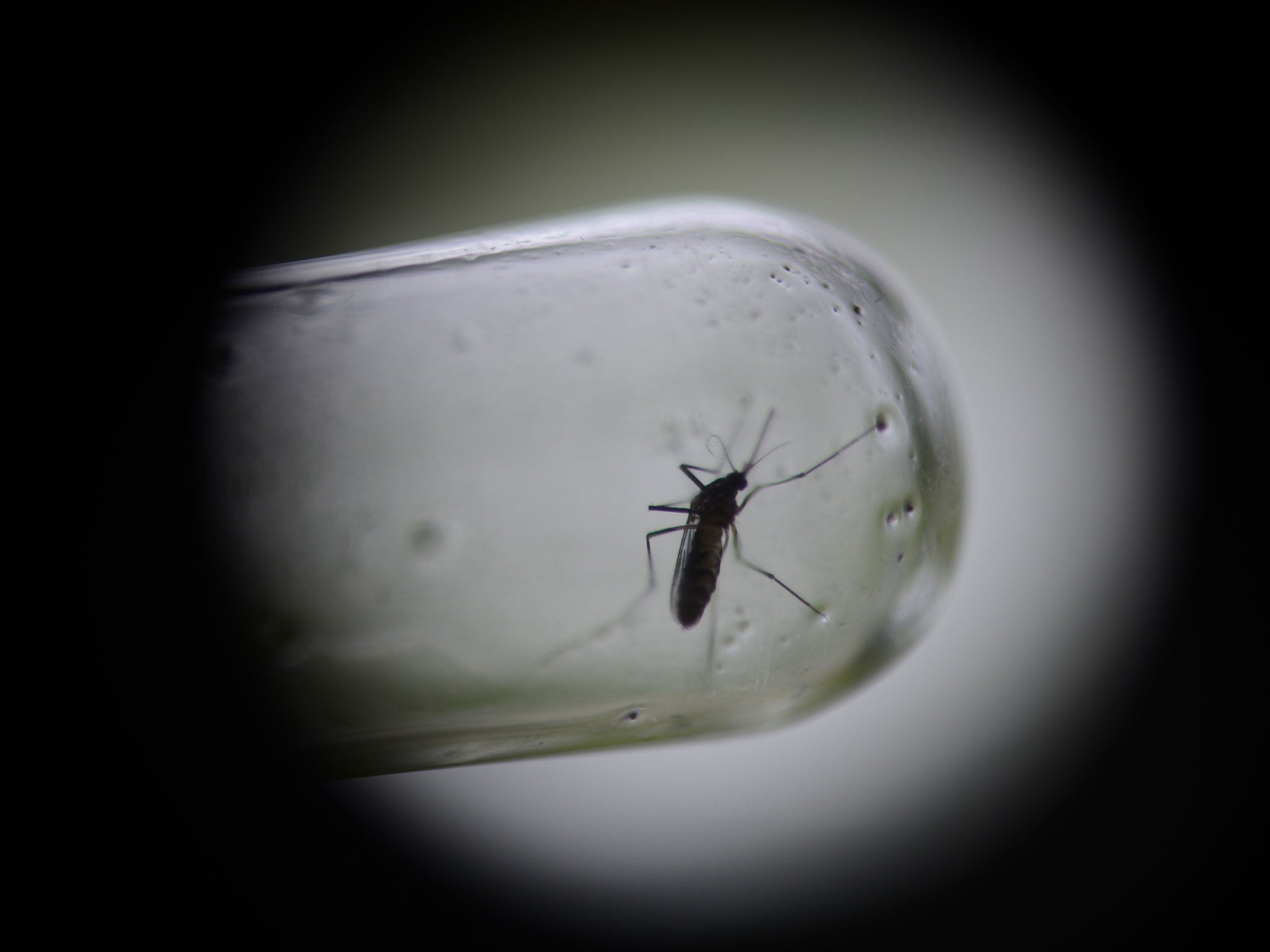World's biggest swarm of genetically modified mosquitoes released in Brazil
The GM insects contain a lethal gene that it is hoped will help to combat dengue fever

Your support helps us to tell the story
From reproductive rights to climate change to Big Tech, The Independent is on the ground when the story is developing. Whether it's investigating the financials of Elon Musk's pro-Trump PAC or producing our latest documentary, 'The A Word', which shines a light on the American women fighting for reproductive rights, we know how important it is to parse out the facts from the messaging.
At such a critical moment in US history, we need reporters on the ground. Your donation allows us to keep sending journalists to speak to both sides of the story.
The Independent is trusted by Americans across the entire political spectrum. And unlike many other quality news outlets, we choose not to lock Americans out of our reporting and analysis with paywalls. We believe quality journalism should be available to everyone, paid for by those who can afford it.
Your support makes all the difference.The world’s largest ever swarm of genetically modified mosquitoes has been released in Brazil to combat infectious disease.
Jacobina, a farming town in Bahia, has been plagued for years by dengue fever, a mosquito-borne tropical disease and a leading cause of illness and fatality in Brazil.
The newly hatched Aedes aegypti mosquitoes have been engineered to wipe out their own species, the Global Post reported.
Last year Brazil reported 1.4 million cases of dengue, for which there is no vaccine - the most severe form of the illness, dengue hemorrhagic fever, can lead to shock, coma and death.
The so-called “Franken-skeeter” has been genetically modified (GM) in a laboratory with a gene designed to devastate the non-GM Aedes aegypti population and reduce dengue's spread.
“We need to provide alternatives because the system we have now in Brazil doesn’t work,” said Aldo Malavasi, president of Moscamed, a Brazilian company that’s raising and testing the GM mosquitoes in Jacobina.
“We have thousands and thousands of cases of dengue and that costs a lot for the country. People are unable to work,” he told the Global Post.
However, critics have voiced concerns about the mutant mosquitoes and have said further laboratory studies should be carried out before releasing highly mobile GM insects into the environment
“They are even harder to recall than plants are if anything goes wrong,” said Helen Wallace, director of the British environmental group GeneWatch.
Conventional public health campaigns to fight dengue by fumigating and adding larvicide to water tanks have had little impact because Aedes aegypti often live and breed inside homes and develop resistance to insecticides.
And bed nets used while sleeping provide no protection because the mosquitoes that carry dengue bite during the day rather than at night. Education campaigns urging people to wear insect repellent and long sleeves have failed to change people’s behaviour.
According to the World Health Organisation (WHO), there has been a 30-fold increase in dengue cases around the globe during the last 50 years.
Malavasi and his team are working with a strain of Aedes aegypti developed by a British biotech firm called Oxitec. Known as the OX513-A, it is the world’s first GM insect to be set free in the wild.
A small number were first tested in 2010 in the Cayman Islands and Malaysia, but Oxitec says the Jacobina swarm is the largest ever.
The mosquitoes contain a lethal gene but are kept alive in the laboratory with the help of the antibiotic tetracycline. Once they reach larval stage, the males are separated from the females, which are subsequently destroyed.
Then the males, which don’t bite, are released so they can mate with wild females. Their offspring inherit the lethal gene and then die before they can reproduce because they are not treated with tetracycline.
“It is like a live insecticide,” Malavasi said.
But Wallace has voiced concerns that a small number of female mosquitoes could also be released - and end up biting people. She also suggested that some of the new offspring could survive by feeding on food or waste contaminated with tetracycline and therefore pass on their GM traits.
Others have suggested that the vacuum left by the Aedes aegypti could be filled the so-called Asian tiger mosquito, which also carries dengue.
The Brazilian government has authorised Moscamed to blanket Jacobina with GM mosquitoes during a two-year test period.
Malavasi has so far reported a 90 per cent drop in wild Aedes aegypti mosquitoes in the town.
Field testing with Oxitec’s GM mosquitoes will begin in Panama in April. Meanwhile, the US Food and Drug Administration is expected to decide soon on whether or not to approve a test release of GM mosquitoes in the Florida Keys, which suffered an outbreak of dengue in 2009.
Join our commenting forum
Join thought-provoking conversations, follow other Independent readers and see their replies
Comments